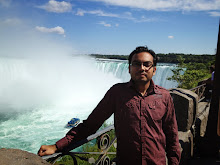Afghanistan (Listeni /æfˈɡænɪstæn/; افغانستان afġānistān), officially the Islamic Republic of Afghanistan, is a landlocked and mountainous country in south-central Asia.[9] It is bordered by Pakistan in the south and east,[note] Iran in the west, Turkmenistan, Uzbekistan and Tajikistan in the north, and China in the far northeast. The territory now forming Afghanistan have been an ancient focal point of the Silk Road and human migration. Archaeologists have found evidence of human habitation from as far back as 50,000 BC.[10] Urban civilization may have begun in the area as early as 3000 to 2000 BC.[11]

 The country sits at an important geostrategic location that connects the Middle East with Central Asia and the Indian subcontinent,[12] which has been home to various people through the ages.[13] The land has witnessed many military conquests since antiquity, notably by Alexander the Great, Chandragupta Maurya, and Genghis Khan.[10][11] It also served as a source from which local dynasties such as the Greco-Bactrians, Kushans, Saffarids, Ghaznavids, Ghorids, Timurids, Mughals and many others have established empires of their own.[14]
The country sits at an important geostrategic location that connects the Middle East with Central Asia and the Indian subcontinent,[12] which has been home to various people through the ages.[13] The land has witnessed many military conquests since antiquity, notably by Alexander the Great, Chandragupta Maurya, and Genghis Khan.[10][11] It also served as a source from which local dynasties such as the Greco-Bactrians, Kushans, Saffarids, Ghaznavids, Ghorids, Timurids, Mughals and many others have established empires of their own.[14]
The political history of modern Afghanistan begins in the 18th century with the rise of the Pashtuns (known as Afghans in Persian language), when the Hotaki dynasty rose to power at Kandahar in 1709 followed by the establishment of Ahmad Shah Durrani's Durrani Empire in 1747.[4][15][16] The capital of Afghanistan was shifted in 1776 from Kandahar to Kabul and part of its territory was ceded to neighboring empires by 1893. In the late 19th century, Afghanistan became a buffer state in the "Great Game" between the British and Russian empires.[17] On August 19, 1919, following the third Anglo-Afghan war and the signing of the Treaty of Rawalpindi, the nation regained control over its foreign policy from the British.
Since the late 1970s, Afghanistan has experienced a continuous state of war, including major occupations in the forms of the 1979 Soviet invasion, a Pakistani military intervention in support of the Taliban in the late 1990s and the October 2001 US-led invasion that overthrew the Taliban government. In December 2001, the United Nations Security Council authorized the creation of an International Security Assistance Force (ISAF) to help maintain security and assist the Karzai administration.[18] The country is currently being rebuilt slowly with support from the international community while dealing with the Taliban insurgency and widespread political corruption.[19][20]

The political history of modern Afghanistan begins in the 18th century with the rise of the Pashtuns (known as Afghans in Persian language), when the Hotaki dynasty rose to power at Kandahar in 1709 followed by the establishment of Ahmad Shah Durrani's Durrani Empire in 1747.[4][15][16] The capital of Afghanistan was shifted in 1776 from Kandahar to Kabul and part of its territory was ceded to neighboring empires by 1893. In the late 19th century, Afghanistan became a buffer state in the "Great Game" between the British and Russian empires.[17] On August 19, 1919, following the third Anglo-Afghan war and the signing of the Treaty of Rawalpindi, the nation regained control over its foreign policy from the British.
Since the late 1970s, Afghanistan has experienced a continuous state of war, including major occupations in the forms of the 1979 Soviet invasion, a Pakistani military intervention in support of the Taliban in the late 1990s and the October 2001 US-led invasion that overthrew the Taliban government. In December 2001, the United Nations Security Council authorized the creation of an International Security Assistance Force (ISAF) to help maintain security and assist the Karzai administration.[18] The country is currently being rebuilt slowly with support from the international community while dealing with the Taliban insurgency and widespread political corruption.[19][20]

